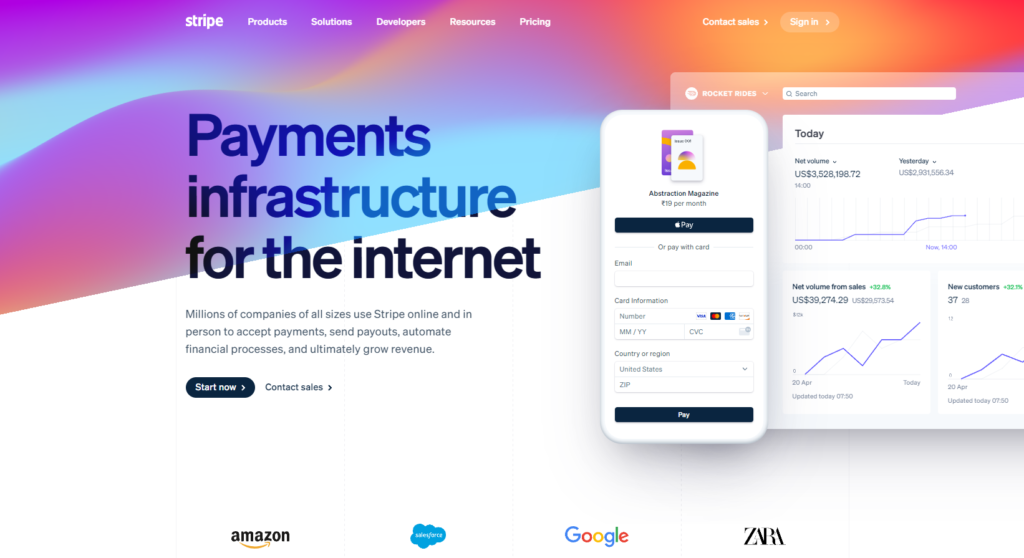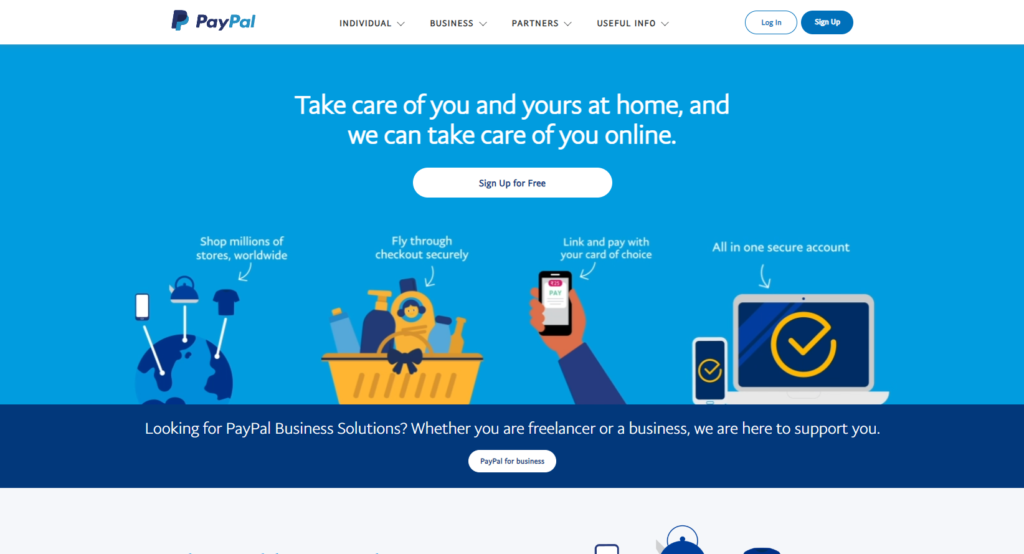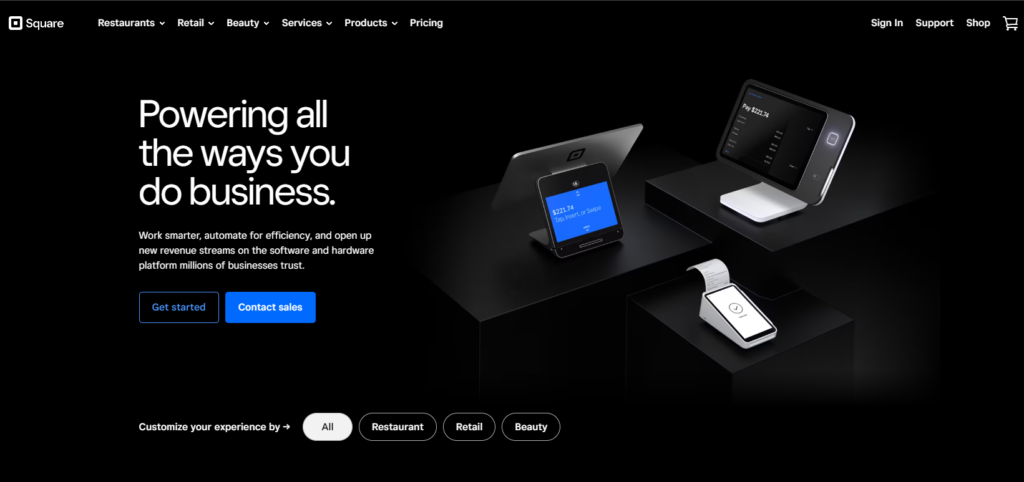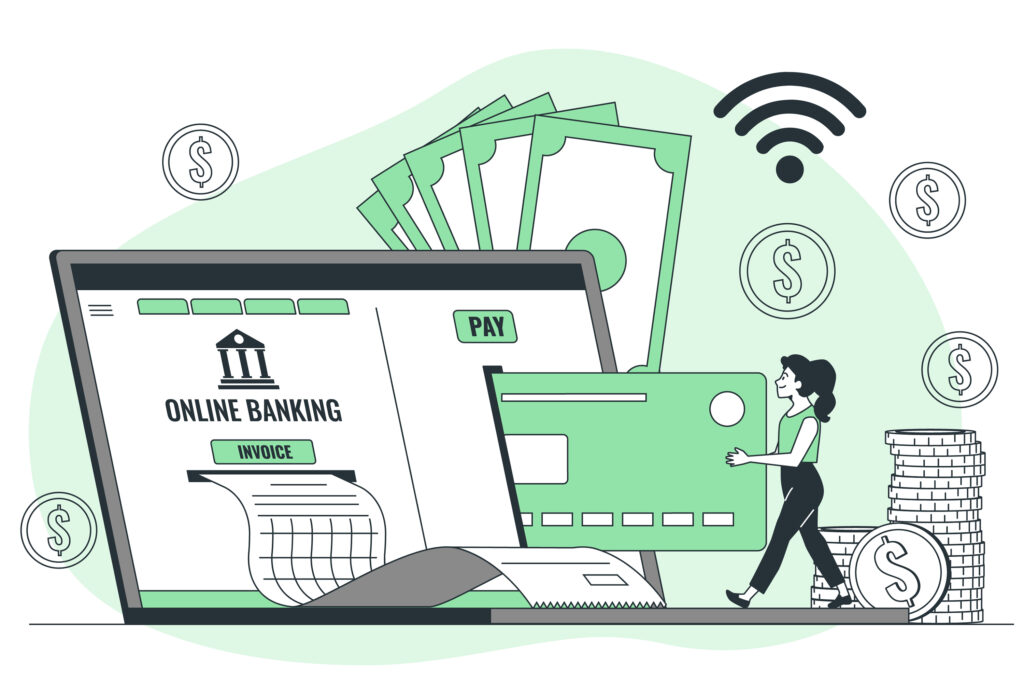Imagine smooth checkout experiences and happy customers – that’s the magic of Ecommerce payment gateways. These tech-savvy middlemen ensure secure transactions, turning window shoppers into loyal fans.
In today’s booming online market (think over 2.6 BILLION digital buyers!), a robust payment system is your jetpack to ecommerce success. This guide dives straight into choosing the perfect payment gateway for your store, helping you navigate features, fees, and the path to checkout bliss.
What is a Ecommerce Payment Gateway?
Alright, picture this: you’ve built an awesome online store, got killer products lined up, and customers flocking to browse. But how do they actually hand over the cash (well, virtually)? That’s where payment gateways come in.
Think of them as the tech-savvy caretaker of the online shopping world. They handle the nitty-gritty of payment processing, securely shuttling customer information between your website and their bank accounts. They ensure everything runs smoothly and keeps those purchases rolling in.
How Does Ecommerce Payment Gateway work?
You’re running a thriving online store, but there’s a gap between you and your happy customers – the checkout process. That’s where the payment gateway swoops in like a digital superhero! It acts as a secure bridge, taking customer payment information like credit card details and whisking them off to the merchant-acquiring bank. There, the bank checks everything out (think of them as the watchful guardians of financial transactions) and, if all is good, sends the green light back to your store. This smooth and secure exchange ensures both you and your customers have a fantastic experience – you get paid, and they get their awesome new purchase.
That’s the simplified flow. Ecommerce Payment gateways handle a lot more behind the scenes, like fraud checks and keeping everything secure. But this should give you a good idea of how they work their magic to make online shopping a smooth experience for both you and your customers.
Best Ecommerce payment gateway for ecommerce websites
Stripe

This tech whiz is known for its user-friendly ways and smooth integration with tons of online stores. It’s got your back with things like credit cards, digital wallets (think Apple Pay and Google Pay), and even lets you set up subscriptions and send invoices. Plus, security is a big deal for them, so you can rest easy knowing they’ve got things locked down tight.
Pros:
- User-friendly: Known for its smooth interface, Stripe is easy to set up and integrate with many online stores.
- Feature-rich: Supports various payment methods, subscriptions, invoicing, and customizable checkout options.
- Developer friendly: Offers robust APIs and clear documentation for seamless integration into your online store.
- Security focused: Prioritizes security with PCI compliance, two-factor authentication, and advanced fraud detection.
- Transparent fees: Competitive transaction fees with no setup or monthly costs.
Cons:
- May require some development knowledge: For advanced customization, you might need developer expertise.
- Limited customer support: While offering resources, direct support might be limited compared to other options.
Price:
| Payment Gateway | Transaction Fees | Setup Fees | Monthly fees | Additional fees |
| Stripe | Varies by country (e.g., 2.9% + $0.30 per successful card charge in the US) | None | None | Custom pricing available for large businesses |
PayPal

A household name for a reason, PayPal offers a familiar and trusted checkout for your customers. No need for them to type in their card details on your site – just bam, instant payment magic! They also accept various payment methods, including their own PayPal balance, credit cards, and even offer financing options. Security’s on point too, with encryption and fraud detection keeping things safe. Fees might vary depending on your sales volume and such, but they’re generally transparent about pricing.
Pros:
- Brand recognition: Trusted name adds familiarity and boosts customer confidence.
- Convenience: Customers can pay without entering card details on your site.
- Multiple payment methods: Supports various options like credit cards, PayPal balance, and financing options.
- Widely accepted: Accepted by many online stores, making it a familiar checkout experience for customers.
- Security measures: Employs encryption, fraud detection, and buyer/seller protection policies.
Cons:
- Potentially higher fees: Fees may vary based on transaction volume and other factors, potentially costing more than some competitors.
- Limited customization: Checkout experience customization options might be less flexible compared to other gateway.
Price:
| Payment Gateway | Transaction Fees | Setup Fees | Monthly Fees | Additional Fees |
| PayPal | Varies (e.g., 2.9% + $0.30 per transaction in the US) | None for standard accounts | None | Additional fees for advanced features like PayPal Payments Pro |
Square

If you’re a brick-and-mortar store owner who’s also venturing online, Square’s your bestie. They offer a one-stop shop for managing both your online and offline transactions. Plus, they handle more than just payments – think point-of-sale systems, keeping track of your inventory, and even giving you sales insights. Security’s a priority, so you can focus on building your business empire.
Pros:
- All-in-one solution: Perfect for businesses with both online and physical stores, managing all transactions in one place.
- Additional features: Offers POS systems, inventory management, and analytics tools beyond just payment processing.
- Easy integration: Seamless integration with its own ecosystem and plugins for other platforms.
- Security focus: Prioritizes security with features like end-to-end encryption and fraud prevention tools.
- Transparent pricing: No monthly fees for basic payment processing, with clear transaction fees.
Cons:
- Limited features for online-only stores: If you’re solely online, some features might be irrelevant or redundant.
- Hardware dependence: Utilizing Square’s full potential might require investment in their hardware solutions.
Price:
| Payment Gateway | Transaction Fees | Setup Fees | Monthly Fees | Additional Fees |
| Square | Varies by payment method (e.g., 2.6% + $0.10 per swipe/dip/tap for in-person transactions) | None | None | Additional fees for hardware and advanced features |
The Rundown on the Rest
There are many other Ecommerce payment gateway options out there, each with its own strengths. Here’s a quick peek at some of them:
- Authorize.Net: A versatile choice for businesses of all sizes, offering robust features and integrations.
- Braintree (by PayPal): Another modern platform with a focus on various payment methods and a smooth checkout experience.
- Amazon Pay: Perfect if your customers are already in the Amazon ecosystem, letting them pay with their existing accounts.
- 2Checkout: A global player for businesses looking to accept payments from all corners of the world.
- Adyen: A powerhouse for larger businesses with complex needs, offering advanced features and international capabilities.
- Worldpay: Another global option with a wide range of features and industry-specific solutions.
Choosing Your Gateway
Remember, the “best” Ecommerce payment gateway depends on your unique business needs. Consider factors like fees, features, supported currencies, security, ease of integration, and customer support. Don’t forget to think about how the gateway aligns with your business model, target audience, and future plans.
So, explore your options, compare features, and pick the champion that will help you conquer the checkout and keep your customers happy!
Main Types of Ecommerce Payment Gateways

Different payment gateways cater to various business needs, kind of like choosing the right tool for the job.
- Hosted Gateways: These are like secure payment counters outside your online store. Customers pay directly there, keeping your site clean. Great for many businesses.
- Self-Hosted Gateways: Imagine building your own payment fort. You have more control but also more technical burden.
- API-Hosted Gateways: Think Lego blocks for payments. Super flexible with customization but requires coding skills.
- Local Bank Gateways: These cater to specific regions, offering local features and potentially lower fees.
Remember, the best gateway depends on your business size, tech knowledge, and target audience. Find the one that keeps your checkout smooth, secure, and hassle-free!
Ecommerce Payment Gateways Limitations
Payment gateways: awesome, but not flawless. Here’s the scoop:
- Fees: Every transaction comes with a cut for the gateway. Keep an eye on rates, especially for high-volume stores.
- Not All-Inclusive: Gateways cater to different needs. Some focus on international sales, others on recurring payments. Choose wisely.
- Integration Effort: Not all gateways are simple. Some require coding to connect smoothly with your store.
- Security: Breaches can happen. Pick a gateway with a strong security track record.
These limitations shouldn’t stop you from using one. Gateways are essential for online stores. Just be aware of these potential bumps in the road to pick the best fit for your business.
Also Read: AI Tools For E-Commerce And Dropshipping Success
Why You Should Stack Payment Gateways

Stacking gateways is like having multiple checkout lines at your store:
- More options: Offer customers their preferred payment methods (credit card, digital wallet, etc.).
- Dodge downtime: One gateway down? No worries, others keep sales flowing.
- Boost approval rates: Different gateways have varying success rates, stacking increases your chances of a smooth transaction.
But be warned:
- Extra fees: More gateways = potentially more fees.
- Integration effort: Setting up and managing them can be trickier.
Stacking works well for:
- High-volume businesses
- Global audiences
- Businesses needing a checkout safety net
Consider the pros and cons: Stacking offers advantages but requires planning. Choose the path that keeps your checkout smooth and sales happy!
Conquering the Checkout
So, there you have it! Payment gateways are the secret sauce that turns website visitors into paying fans. They handle the nitty-gritty of online transactions, keeping things secure and making checkout a breeze.
Remember:
- Shop around: Explore different gateways, compare features, and find the one that fits your business like a glove.
- Don’t be afraid to stack: Multiple gateways can offer more options and peace of mind, but be mindful of extra fees and complexity.
- Security is key: Choose a gateway with a solid reputation for keeping your customers’ financial information safe.
With the right payment gateway in place, your online store can become a sales powerhouse. Now go forth and conquer the ecommerce world!






